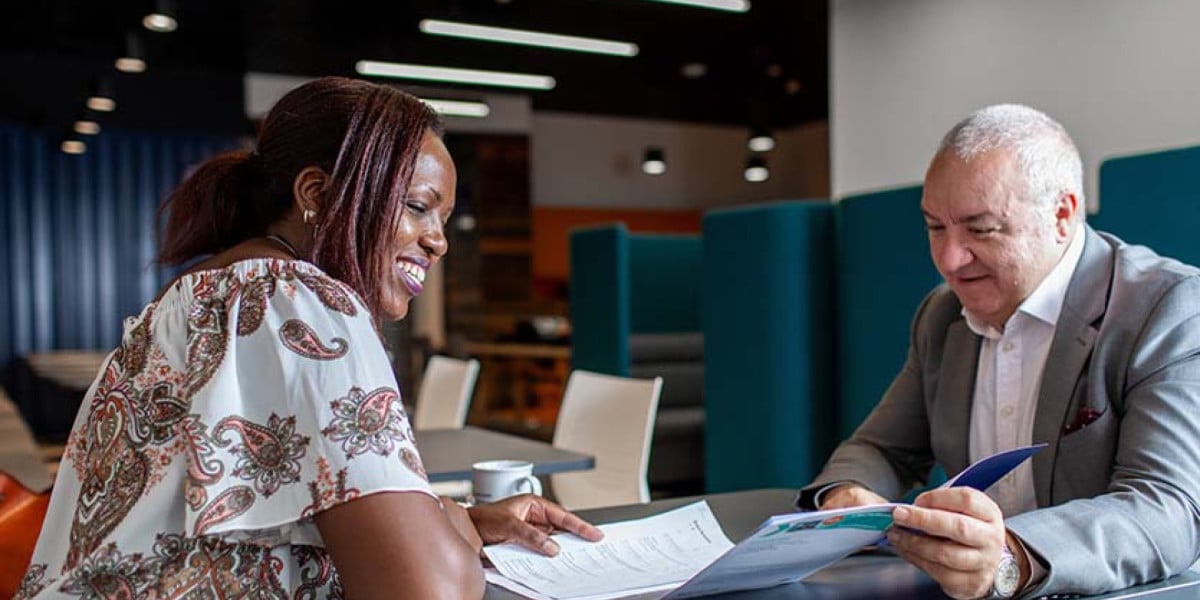
Chartered ABS responds to the DfE’s technical consultation on the International Student Levy
The Chartered ABS has submitted its response to the Department for Education’s technical consultation on the International Student Levy.
- Home
- / Insights
- / Knowledge sharing
- / How to integrate experiential learning into accounting education
How to integrate experiential learning into accounting education

Authors

Mike Franco CMBE
Programme Leader Accounting and Finance, Liverpool Business School
Higher education has long been an advocate of experiential learning. Indeed, university literature will highlight and promote the importance and benefits that this style of learning provides the student. These benefits will often include the following:
A better understanding of taught theories and concepts.
A broader view of the professional world and an appreciation of community.
The development and enhancement of their own skills, interests, passions and values.
Providing opportunities to work with organisations and people.
Developing professional competency.
Developing self-confidence.
The benefits of experiential learning are therefore clear to see, yet accounting education still faces challenges in its attempt to integrate experiential learning into its curriculum.
It would be fair to say that accounting education remains firmly entrenched in the classroom (Connell et al., 2015) and has been criticised for focusing on the memorisation of knowledge and correct answers (Turner and Baskerville, 2013), ignoring the fact that this approach fails to address the complexities of the professional world (Dellaportas, 2015).
Cheng, et al (2023) argue that in order to enhance students for the readiness of professional life, experiential learning activities need to be developed. Whilst universities have attempted to address this through the encouragement of internships, industry placements and overseas exchanges, these are not a typical choice for the accounting student. Therefore, the ‘knowing and doing’ can play an integral role in improving the quality of accounting education and preparing students for professional competency.
The “knowing-doing gap” (Pfeffer and Sutton, 1999) is not a new phenomenon. However, what it demonstrates is the continued fragmentation between the knowing and doing in accounting education. The knowing is not in question, as traditional accounting education remains the distinctive approach internationally and is very much ingrained in the curriculum through the topics, theories and concepts that are delivered in traditional delivery modes. However, the doing, which will develop professional attitudes and skills, is less of a consideration in accounting education and it is the doing that will prepare students for the professional world and the complexities it brings. Cox (2015) argues that knowing, which consists of topics and subject matter is important but, the need for doing, and to master job competency, is essential for professional success.
In order to address the fragmentation of “knowing-doing” in accounting education, Liverpool Business School launched its Accounting Clinic in 2021. The Accounting Clinic is an innovative and distinctive approach to accounting education, building knowledge learnt through traditional accounting teaching and learning methods, while also providing its students with the opportunity to immerse themselves in the complexities of real practice and real clients.
The Accounting Clinic offers pro bono work in the form of independent examinations for charitable organisations, led by final year accounting and finance undergraduate students under the supervision of fully qualified accounting academic staff.
So, what have been the positives of the Accounting Clinic so far?
The Accounting Clinic provides experiential learning grounded in real accounting practice.
Students are doing, which is infused with responsibility.
The Accounting Clinic is developing and enhancing professional attitudinal behaviours.
The Accounting Clinic provides development and enhancement in professional hard (technical knowledge) and soft (critical thinking, conflict, teamwork) skills.
The Accounting Clinic is improving the quality of independent examinations through the responsibility given to students.
Graduate employment success gained by working in the Accounting Clinic.
Raising and developing a culture of ethical and social consciousness in accounting students.
Finally, let’s not forget that charities that need an independent examination are being provided this service for free. This cost saving will enable charities to use this money to increase their spending on the important services they provide their community.
If you would like to know more about the Liverpool Business School’s Accounting Clinic please contact Mike Franco (Programme Leader Accounting and Finance) on [email protected]
